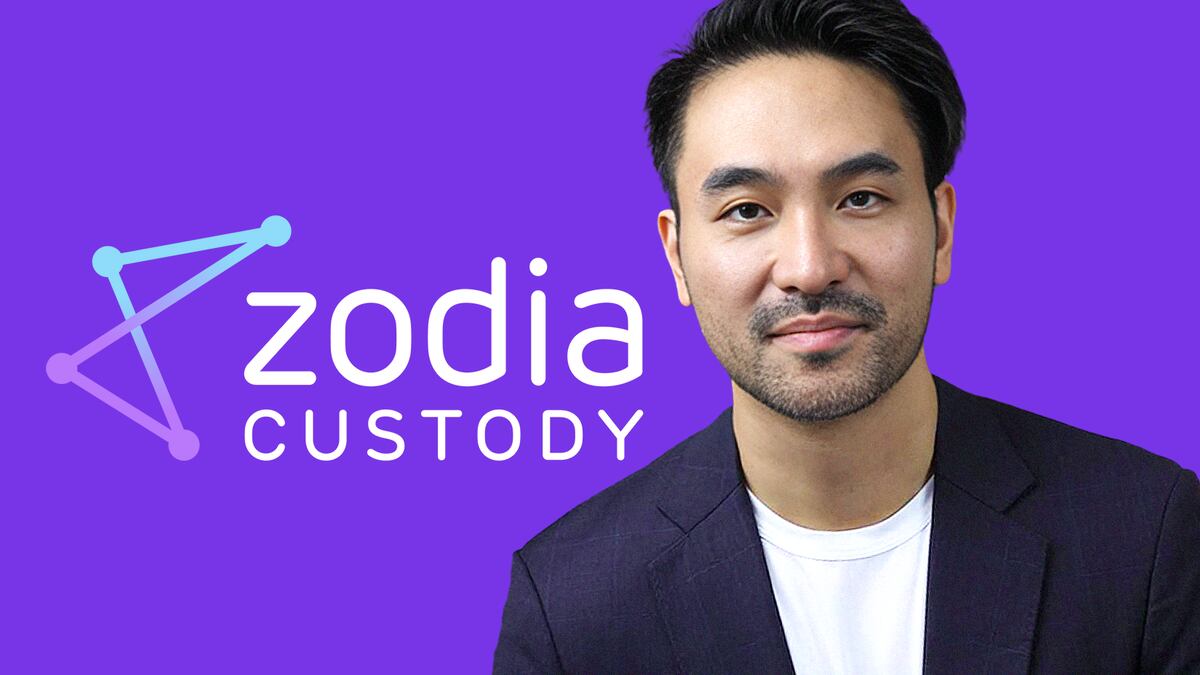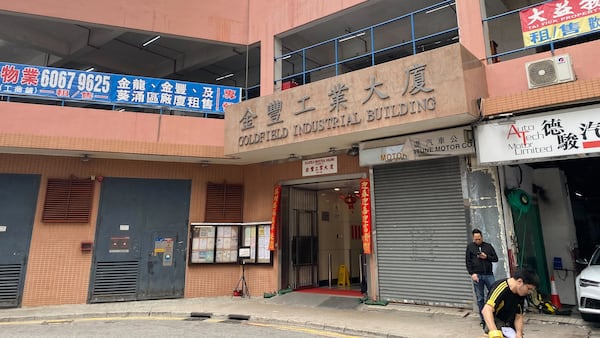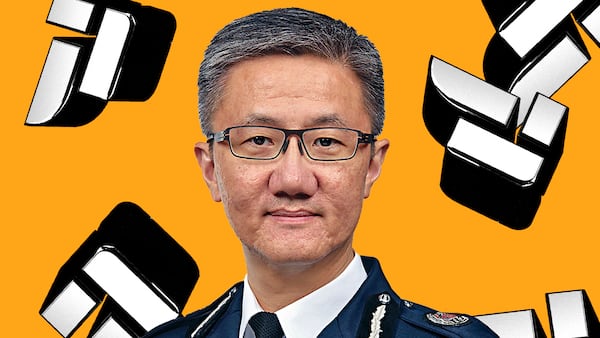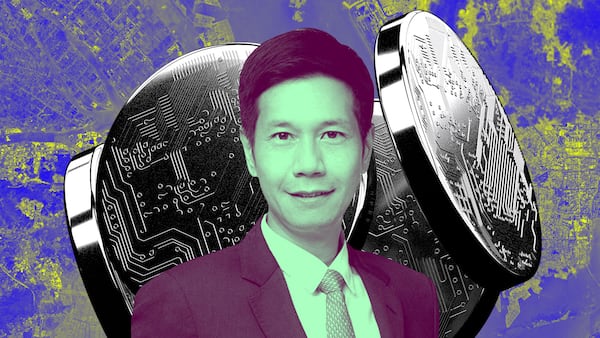- Zodia Custody CEO Kal Chan argues new rules are needed to separate custody services from exchanges.
- OSL executive director Gary Tiu countered that existing rules protect investors.
- Debate simmers as Hong Kong welcomes Bitcoin and Ether ETFs.
Cryptocurrency ventures typically bristle at regulation. But in Hong Kong one group has repeatedly called for it — cryptocurrency custodian companies.
“We want to be regulated,” Kal Chan, the CEO of Zodia’s Hong Kong unit, told DL News.
Zodia Custody, which is backed by the British banking giant Standard Chartered, is eager to work with regulators on developing specific regulation for cryptocurrency custodians, the outfits that take care of digital assets for clients.
And in particular, they want officials to stop requiring cryptocurrency exchanges to manage the assets of exchange users through an “associated entity” and can’t use third party custodians.
The perils of co-mingling
The problem, Zodia said, is that having exchanges take care of client assets as well as their own funds creates the perception they may be co-mingled.
This is taboo in the capital markets because exchanges should be neutral facilitators of buying and selling, and not tapping customer deposits for their own ends.
“It’s not really a best practice to have exchanges that are operating exchanges also holding the clients’ assets,” Chan said.
Indeed, misappropriation of assets was a big reason why FTX, the world’s second biggest crypto exchange in 2022, failed.
The practice also featured in the collapse of Celsius, the crypto lender that went bust the same year, according to legal actions brought by US officials. (Chan was head of APAC institutional business at Celsius from November 2020 to September 2022.)
Of course, custodians also stand to benefit if the rules are changed because it will bring them more clients.
‘You need to have confidence that wherever you store crypto assets, they’re going to be safe.’
— Kal Chan, Zodia Custody
More precisely, custodians will be able to attract more institutional investors who are wary of keeping their assets in platforms with inadequate transparency and controls.
“At the end of the day, if you are holding any crypto assets, you need a place to store them,” Chan told DL News.
“You need to have that confidence that wherever you store it, it’s going to be safe and that you’re working with a reputable player.”
‘The regulatory framework in Hong Kong creates a standard of conduct where previously no such standard existed.’
— Gary Tiu, OSL
Not everyone agrees with Chan’s take, of course.
Gary Tiu, executive director and head of regulatory affairs at OSL, a licenced Hong Kong-based exchange, told DL News it’s not the regulations that are creating a duopoly — it’s a sign of a maturing market.
“The regulatory framework in Hong Kong creates a standard of conduct where previously no such standard existed,” Tiu said.
If operators fall short of these standards, he said it’s not the fault of regulators being too harsh. In addition, regulations to safeguard assets custodied at exchanges already exist.
“Every year we get independently audited on our financial statements, on our compliance and on our technology,” he said.
In any event, Chan is hoping there will be a consultation period later this year for custodians, a sign regulators are seriously considering changes.
One thing custody outfits have going for them in Hong Kong is the struggle to get a handle on the many exchanges that offer unregulated crypto trading in the city.
For more than a year, Hong Kong’s financial regulators have pushed hard to get exchanges to apply for licences.
Two platforms are registered — OSL and Hashkey. And a dozen more have applied.
A Duopoly?
OSL and Hashkey both operate as exchanges and maintain their customers’ funds.
Chan said the pair constitute a duopoly when it comes to custody services. For instance, the two companies custody assets for all the issuers of the newly released spot price Bitcoin and Ether ETFs as sub-custodians.
The six ETFs all share the same main custodian — BOCI-Prudential, an affiliate of the Bank of China.
It’s something Zodia can’t do because of local regulations.
“We obviously have ongoing dialogue with regulators about what the best practices should be,” Chan said.
Tiu countered that current practices are doing just fine for investors.
“These are actually very critical protections that market participants should expect from the operators,” Tiu added. OSL is also subject to self-reporting obligations if it becomes aware of failures to comply with client asset segregation.
“We have a regulatory framework that ensures we have a right operating environment,” Tiu said.
Tiu added that while there isn’t a separate custody licensing regime for crypto yet, there also isn’t a standalone custody regime for traditional finance, either.
“I think right now at this point in time in the market, the current regime is still the right one. As technology and as the market continues to mature, we will evolve,” he added.
2,700 family offices
Until the regulatory picture changes, Chan said Zodia’s small Hong Kong-based team is mainly working with family offices.
Hong Kong is home to around 2,700 single-family offices, according to a Deloitte study commissioned by the local government. Each office manages at least US$1.3 million, with 885 managing over US$13 million.
The government set a target of attracting an additional 200 large family offices to the city by 2025 and has introduced a wealth of incentives including tax concessions.
Growing interest
Family offices in Asia have previously reported growing interest among clients for investment in crypto assets as a way of diversifying their portfolios.
“We are helping them to either enter into the space and serve as a custodian or we are helping them to store some of the assets they already have,” he explained.
“A lot of these prospects or firms and institutions that are trying to get into this space are quite comfortable in talking to us. They actually want to talk to us because we’re talking the same language,” he said.
“I think Hong Kong is becoming an ever more important hub for the digital asset world, primarily in the more institutional side of things.”
Healthy development
Tiu added that he thought it would nevertheless be a “healthy development” to see more facets of the sector regulated in Hong Kong.
“I don’t think it’s as simple as let’s put in some regulations and a lot of custodians will come into play,” he said, adding that the market may not be willing to pay for a lot of expensive infrastructure.
“If you’re trying to introduce yet more pieces into the equation, we do also have to ask the question of whether the business environment will support that many players,” he said.
Callan Quinn is DL News’ Hong correspondent. Got a story about crypto in Asia? Get in touch at callan@dlnews.com.







